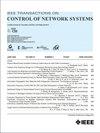具有一跳邻居的分布式多智能体强化学习与离散者缓解计算
IF 4
3区 计算机科学
Q2 AUTOMATION & CONTROL SYSTEMS
引用次数: 0
摘要
大多数多智能体强化学习(MARL)方法所能处理的问题规模有限。随着智能体数量的增加,由于关节状态和动作空间呈指数增长,寻找最优行为所需的训练迭代次数呈指数增长。本文通过引入一种可扩展的MARL方法来解决这一限制,该方法称为带有一跳邻居的分布式多智能体强化学习(DARL1N)。DARL1N是一种非策略的参与者批评方法,它通过在表示值和策略函数时将代理之间的信息交换限制为一跳邻居来解决维度的诅咒。每个智能体在单跳邻域上优化其值和策略函数,显著降低了学习复杂性,同时通过使用不同的邻域数和状态进行训练来保持表达性。这种结构允许我们制定一个分布式学习框架,以进一步加快训练过程。然而,分布式计算系统包含离散计算节点,由于通信瓶颈、软件问题或硬件问题,这些计算节点很慢或没有响应。为了减轻这种有害的掉队效应,我们引入了一种新的编码分布式学习架构,该架构利用编码理论来提高学习系统对掉队者的弹性。综合实验表明,DARL1N在不牺牲策略质量的情况下显著减少了训练时间,并且随着智能体数量的增加具有可扩展性。此外,编码的分布式学习体系结构提高了在离散体存在的情况下的训练效率。本文章由计算机程序翻译,如有差异,请以英文原文为准。
Distributed Multiagent Reinforcement Learning With One-Hop Neighbors and Compute Straggler Mitigation
Most multiagent reinforcement learning (MARL) methods are limited in the scale of problems they can handle. With increasing numbers of agents, the number of training iterations required to find the optimal behaviors increases exponentially due to the exponentially growing joint state and action spaces. This article tackles this limitation by introducing a scalable MARL method called distributed multiagent reinforcement learning with one-hop neighbors (DARL1N). DARL1N is an off-policy actor–critic method that addresses the curse of dimensionality by restricting information exchanges among the agents to one-hop neighbors when representing value and policy functions. Each agent optimizes its value and policy functions over a one-hop neighborhood, significantly reducing the learning complexity, yet maintaining expressiveness by training with varying neighbor numbers and states. This structure allows us to formulate a distributed learning framework to further speed up the training procedure. Distributed computing systems, however, contain straggler compute nodes, which are slow or unresponsive due to communication bottlenecks, software problems, or hardware problems. To mitigate the detrimental straggler effect, we introduce a novel coded distributed learning architecture, which leverages coding theory to improve the resilience of the learning system to stragglers. Comprehensive experiments show that DARL1N significantly reduces training time without sacrificing policy quality and is scalable as the number of agents increases. Moreover, the coded distributed learning architecture improves training efficiency in the presence of stragglers.
求助全文
通过发布文献求助,成功后即可免费获取论文全文。
去求助
来源期刊

IEEE Transactions on Control of Network Systems
Mathematics-Control and Optimization
CiteScore
7.80
自引率
7.10%
发文量
169
期刊介绍:
The IEEE Transactions on Control of Network Systems is committed to the timely publication of high-impact papers at the intersection of control systems and network science. In particular, the journal addresses research on the analysis, design and implementation of networked control systems, as well as control over networks. Relevant work includes the full spectrum from basic research on control systems to the design of engineering solutions for automatic control of, and over, networks. The topics covered by this journal include: Coordinated control and estimation over networks, Control and computation over sensor networks, Control under communication constraints, Control and performance analysis issues that arise in the dynamics of networks used in application areas such as communications, computers, transportation, manufacturing, Web ranking and aggregation, social networks, biology, power systems, economics, Synchronization of activities across a controlled network, Stability analysis of controlled networks, Analysis of networks as hybrid dynamical systems.
 求助内容:
求助内容: 应助结果提醒方式:
应助结果提醒方式:


